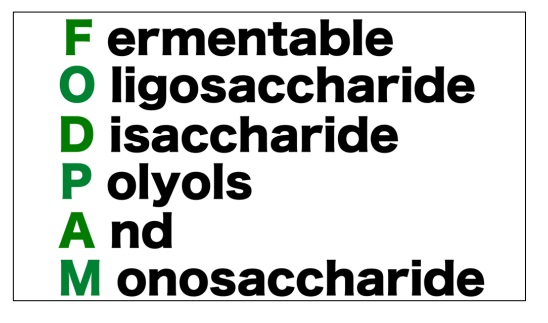การสื่อสารเกี่ยวกับ Low FODMAP ผ่านแอปพลิเคชัน
คำสำคัญ:
การสื่อสาร, Low FODMAP, โรคลำไส้แปรปรวน, ภาวะจุลินทรีย์ในลำไส้เล็กเจริญเติบโตมากผิดปกติ, แอปพลิเคชันบทคัดย่อ
การสื่อสารผ่านแอปพลิเคชันเป็นช่องทางการสื่อสารที่สะดวก ทันต่อยุคสมัย ผ่านโทรศัพท์สมาทโฟน หรือแท็ปเลต ซึ่งใช้กันอย่างแพร่หลายในประชาชนทั่วไป สามารถนำไปสู่การสื่อสารโดยเฉพาะในเรื่องอาหารที่เรียกว่า Low FODMAP ในต่างประเทศนั้นมีการจัดทำและพัฒนาแอปพลิเคชันขึ้นเป็นจำนวนมาก สำหรับประเทศไทยนั้นไม่มีการจัดทำและพัฒนาแอปพลิเคชันขึ้น มีเพียงเป็นการสื่อสารรูปแบบอื่นๆ เช่น เว็บไซต์ สื่อสังคมออนไลน์ เป็นต้น โดยอาหารที่เรียกว่า Low FODMAP สามารถควบควบคุมโรคลำไส้แปรปรวน (IBS) หรือ ภาวะจุลินทรีย์ในลำไส้เล็กเจริญเติบโตมากผิดปกติ (SIBO) มีการสื่อสารมากขึ้นจากช่องทางสื่อสังคมออนไลน์ บทความวิชาการ หรืองานวิจัย ซึ่งเป็นประเด็นน่าที่สนใจ สำหรับประเทศไทยอาหาร Low FODMAP ยังไม่เป็นที่รู้จัก ควรต้องมีการสื่อสารให้ความรู้เรื่อง Low FODMAP ให้มากขึ้น โดยที่สามารถทำให้การสื่อสารเข้าถึงง่าย เข้าใจง่าย และสะดวกในการนำไปใช้ โดยการจัดทำและพัฒนาในรูปแบบแอปพลิเคชันเกี่ยวกับอาหารที่เรียกว่า Low FODMAP โดยคนไทย จากการสำรวจนั้นพบว่ายังไม่มีการการจัดทำและพัฒนาแอปพลิเคชันดังกล่าว ซึ่งหากมีการจัดทำขึ้นสามารถนำมาประยุกต์โดยนำอาหารไทยเพิ่มเข้าไปในฐานข้อมูลเพื่อให้เหมาะสมกับวัฒนธรรมการรับประทานอาหารของคนไทย ทั้งนี้ยังสามารถพัฒนารูปแบบของแอปพลิเคชันในรูปแบบการแสดงด้วยภาพโดยใช้ Internet of Thing (IoT) และเทคนิคปัญญาประดิษฐ์เข้ามาใช้ในการแสดงผล เพื่อทำให้เกิดความสะดวกสบายในการใช้งานมากขึ้น จนทำให้เกิดการแพร่หลายจนเป็นที่รู้จักเป็นวงกว้างในประเทศไทย ดังนั้น บทความนี้มีวัตถุประสงค์ที่กล่าวถึงแง่มุมเรื่องการสื่อสารผ่านแอปพลิเคชันเพื่อเป็นเครื่องมือที่ช่วยบุคคลคนที่เป็นโรคลำไส้แปรปรวนหรือภาวะจุลินทรีย์ในลำไส้เล็กเจริญเติบโตมากผิดปกติ สามารถควบคุมโรคด้วยอาหาร Low FODMAP
เอกสารอ้างอิง
Aziz, I., Tornblom, H., & Simren, M. (2017). Small Intestinal Bacterial Overgrowth as a Cause for Irritable Bowel Syndrome: Guilty or Not Guilty?. Current Opinion in Gastroenterology, 33(3), 196-202.
Berlo, D. K. (1960). The Process of Communication. New York: Holt, Rinehart and Winston, Inc.
Chaiyasit, K., Permpoon, V., & Wutthikongsombat, W. (2017). Therapeutic Nutrition for Small Intestinal Bacterial Overgrowth (SIBO). Journal of Community Pharmacy Association (Thailand), 16(95), 53-58. (in Thai)
Dukowicz, A. C., Lacy, B. E., & Levine, G. M. (2007). Small Intestinal Bacterial Overgrowth: a Comprehensive Review. Gastroenterology & hepatology, 3(2), 112–122.
Ghoshal, U. C., Shukla, R., & Ghoshal, U. (2017). Small Intestinal Bacterial Overgrowth and Irritable Bowel Syndrome: A Bridge between Functional Organic Dichotomy. Gut and liver, 11(2), 196-208.
Gibson, P. R., & Shepherd, S. J. (2005). Personal View: Food for Thought-Western Lifestyle and Susceptibility to Crohn’s Disease. The FODMAP hypothesis. Aliment Pharmacol Ther, 21(12), 1399-1409.
Hill, P., Muir, J. G., & Gibson, P. R. (2017). Controversies and Recent Developments of the Low-FODMAP Diet. Gastroenterology & hepatology, 13(1), 36–45.
Hootsuite & We Are Social. (2021). Digital 202: Thailand. Retrieved May 15, 2021 from https://datareportal.com/reports/digital-2021-thailand.
Huedhun, K. (2017). The Influence of Line Application in the Present Communication. Journal of Arts Management, 1(2), 75-88. (in Thai)
Juntrapirat, A. (2016). Effect of Structured Individual-Based Lifestyle Low Fodmaps Dietary Advice (Silfd) Compare with Usual Care Low Fodmaps Dietary Advice in Gastrointestinal Symptoms and Intestinal Hydrogen Gas Production in Patients with Irritable Bowel Syndrome. A Thesis Submitted in Partial Fulfillment of the Requirements for The Degree of Master of Science Program in Medicine, Department of Medicine, Faculty of Medicine, Chulalongkorn University. (in Thai)
Kriengsinyos, W. (2020). FODMAPs Diet and Irritable Bowel Syndrome. In Proceeding of the Thai Dietetic Conference: 23-25 November 2020; Journal of The Thai Dietetic Association, 40(1-3), 91-94. (in Thai)
Linlawan, S. (2013). Effect of Rice Carbohydrate Ingestion on Intestinal Hydrogen Gas Production and Symptom in Non-Constipation Irritable Bowel Syndrome Patients compared with Carbohydrate from Wheat or Mungbean. A Thesis Submitted in Partial Fulfillment of the Requirements for The Degree of Master of Science Program in Medicine, Department of Medicine, Faculty of Medicine, Chulalongkorn University. (in Thai)
Longstreth, G. F., Thompson, W. G., Chey, W. D., Houghton, L. A., Mearin, F., & Spiller, R. C. (2006). Functional Bowel Disorders. Rome III, Gastroenterology, 130(5), 1480–1491.
Magge, S., & Lembo, A. (2012). Low-FODMAP Diet for Treatment of Irritable Bowel Syndrome. Gastroenterology & Hepatology, 8(11), 739-745.
Maneerattanaporn, M. (2020). Irritable Bowel Syndrome and FODMAPs Diet. In Proceeding of the The Thai Dietetic Conference: 23-25 November 2020; Journal of The Thai Dietetic Association, 40(1-3), 95-106. (in Thai)
Ubonrasamee, S. (2017). Media Exposure, Sharing and Media Literacy of Health Information on Social Media. A Thesis Submitted in Partial Fulfillment of the Requirements for The Degree of Master of Arts Program in Mass Communication, Faculty of Journalism and Mass Communication, Thammasat University. (in Thai)
Yatinan, U. (2015). Role of low FODMAPs diet in enteral nutrition-associated diarrhea. Thai Journal of Parenteral and Enteral Nutrition, 23(1), 27-30. (in Thai)

ดาวน์โหลด
เผยแพร่แล้ว
ฉบับ
ประเภทบทความ
สัญญาอนุญาต
ลิขสิทธิ์ (c) 2022 วารสารเครือข่ายวิทยาลัยพยาบาลและการสาธารณสุขภาคใต้

อนุญาตภายใต้เงื่อนไข Creative Commons Attribution-NonCommercial-NoDerivatives 4.0 International License.
1. บทความหรือข้อคิดเห็นใด ๆ ที่ปรากฏในวารสารเครือข่าย วิทยาลัยพยาบาลและการสาธารณสุขภาคใต้ ที่เป็นวรรณกรรมของผู้เขียน บรรณาธิการหรือเครือข่ายวิทยาลัยพยาบาลและวิทยาลัยการสาธารณสุขภาคใต้ ไม่จำเป็นต้องเห็นด้วย
2. บทความที่ได้รับการตีพิมพ์ถือเป็นลิขสิทธิ์ของ วารสารเครือข่ายวิทยาลัยพยาบาลและการสาธารณสุขภาคใต้







